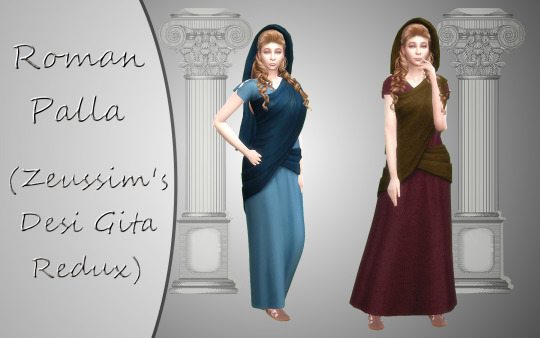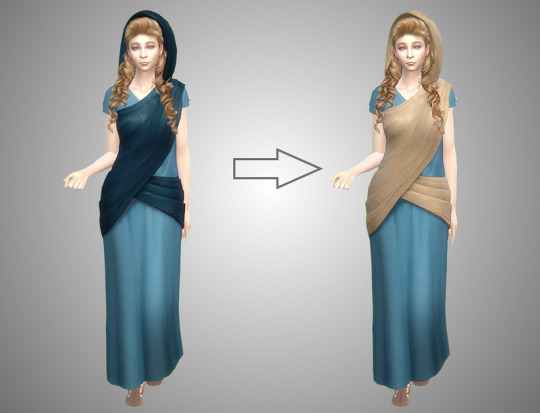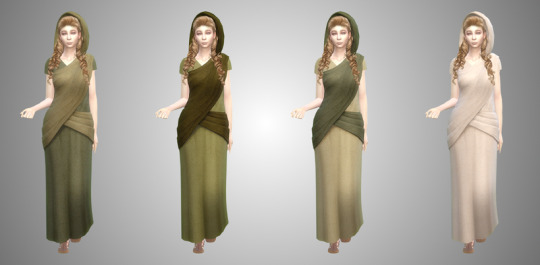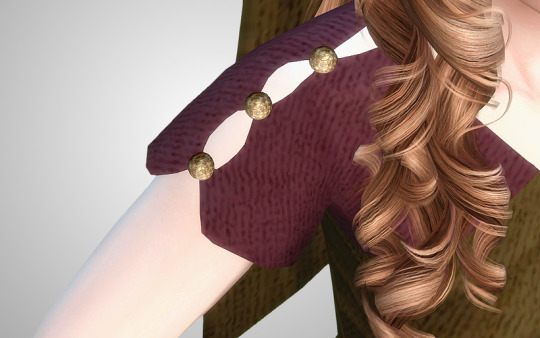#post roman Britain
Text
Time Travel Question 34: Medievalish and Earlier 3
These Questions are the result of suggestions from the previous iteration.
This category may include suggestions made too late to fall into the correct earlier time grouping. Basically, I'd already moved on to human history, but I'd periodically get a pre-homin suggestion, hence the occasional random item waaay out of it's time period, rather than reopen the category.
In some cases a culture lasted a really long time and I grouped them by whether it was likely the later or earlier grouping made the most sense with the information I had. (Invention ofs tend to fall in an earlier grouping if it's still open. Ones that imply height of or just before something tend to get grouped later, but not always. Sometimes I'll split two different things from the same culture into different polls because they involve separate research goals or the like).
Please add new suggestions below if you have them for future consideration. All cultures and time periods welcome.
#Old English#Middle English#Linguistics#Vikings#North American History#Time Travel#Early Middle Ages#Indigenous History#Prester John#Middle Ages#Koran#Greenland#King Olaf#Arthuriana#Post Roman Britain#Heian Era Japan#Japanese History#Rapa Nui#Ammonites
129 notes
·
View notes
Text
Turned that comic into an animation
#animation#digital art#poem#the ruin#post roman Britain#history#roman history#history poem#history art#my art#I’ve never animated before b nice plz
48 notes
·
View notes
Text

Bless the young man who hiked 3 hours to plant a new sycamore tree
#Hadrian's Wall#Northumberland#sycamore gap#twitter post#English countryside#Roman Britain#vandalism#British history#empathy#justice#sapling#rural landscape#felled tree#UK
113 notes
·
View notes
Text
I just have.... so many feelings about Early Middle Ages Arthur... tiny child... all I do is lie face-first on the ground and be sad about this timid, little, lonely child navigating what’s essentially a very low-grade post-apocalypse. little child named after a hero sworn to protect him but who never actually existed. little child getting tossed between so many languages and religions and cultures that it’s a shock he has any real sense of stability. little child scared of his own shadow, because every shadow hides some new danger. I don’t know, man. I read ‘The Groans of the Britons’ and I just gotta go lie down.
#hetalia hcs#hws england#arthur kirkland#aph england#hetalia headcanons#medieval hetalia#historical hetalia#it's really hard to tell how chaotic post-Roman Britain was#for the average joe it probably WASN'T an apocalyptic hellhole#but for Arthur? a nation? I think it would be hell.#because his hell isn't being in immediate physical danger (I mean he's immortal) so much as... idk what even is a nation#nations are fake#I guess Arthur would know that better than anyone
183 notes
·
View notes
Text
some creative, wanting to make a King Arthur adaptation: "But how will people know it's for boys?"
his barista, trapped in this conversation: "What?"
creative: "You know, the knights and castles and magic and chivalry - I mean it's all kind of gay."
barista: "I--uh. Is it?"
creative: "Women are into that stuff, but they don't move tickets. I need to signal loud and clear that this King Arthur is butch, and that his knights are all rugged and masculine. --What's the most male time period?"
barista: "That's such a wild question."
creative: "I mean it has to be England after the Romans left, right? With all the Vikings and blue people and aqueducts and swordplay."
barista: "Isn't there still swordplay if they're all chivalric knights in the fourteenth century?"
creative: "No! No, that's gay, Rebecca, aren't you listening!"
rebecca: "Jesus."
creative: "What kind of guy is going to watch a movie about knights riding off to London when he could watch a movie about a warlord riding to Londinium?"
rebecca, pulling a quad shot with a thousand yard stare: "I honestly couldn't say."
creative, yelling into his voice memo app: "find and replace 'Merlin' with 'Taliesin'. -- God this is gonna be huge."
#anyway the only valid way to do a king arthur adaptation is to treat post-roman britain as an apocalyptic landscape#and superimpose anachronistic high medieval aesthetics onto it#bernard cornwall and stephen lawhead and the clive owen arthur and all their ilk#are homophobic to me specifically#stop anchoring this to the fifth century!!! grow up!!#(this may be the most specifically on brand complaint I've ever gone to so much trouble to make)#arthuriana
49 notes
·
View notes
Text
Explaining to people that one of the most formative influences on my style as a writer was Rosemary Sutcliff always feels like an exercise in futility because no one ever knows who she is :')
#rosemary sutcliff#rain rambles#she was a disabled english writer#from the 1900s#born in 1920 and died 1992#who wrote primarily historical fiction#mostly based around preroman/roman/post roman britain#but has some other things as well#her most well known work is eagle of the ninth#because they made a channing tatum movie out of it#but i cannot stress enough how inadequately that movie tells the stories she told#living with disability#cross cultural friendships#cross cultural UNDERSTANDING#individual vs cultural conflict#she also wrote two different versions of arthuriana#one with a more fantasy twist#and one as part of her loose historical fiction series#sword at sunset is one of her only books strictly for adult readers#she was my introduction to king arthur#when i read sword in the circle when i was like eight
12 notes
·
View notes
Text

Finally, a real medieval elephant appears! Just not where you might expect.
Katie Hemer, Hugh Willmott, Jane Evans, and Michael Buckley have shown that this ring was made from an African elephant's (genus Loxodonta's) ivory tusk in the fifth or sixth century. It was probably used as a handle on a cloth bag. It was found in a grave in Scremby, Lincolnshire (UK), where it had been buried sometime between around 450 and 550 AD.
And this wasn't the only elephant ivory to show up thousands of miles away in northern Europe: elephant ivory rings have been found in over 70 cemeteries in the area that is now England, and some have been found in the area that is now northern Germany, too. These cemeteries seem to date to the period before the 7th century.
This particular elephant may have originated in the African Rift Valley, and its ivory may have been traded from the Kingdom of Aksum to Europe. The time when it was traded coincided with the political power of the Roman Empire crumbling in western Europe and some (but not all) trade routes being disrupted. Yet the world has always been interconnected: we can't ignore the history of any region or any time.
Katie A. Hemer, Hugh Willmott, Jane E. Evans, Michael Buckley,
"Ivory from early Anglo-Saxon burials in Lincolnshire – A biomolecular study", Journal of Archaeological Science: Reports,
49 (2023), 103943, ISSN 2352-409X, https://doi.org/10.1016/j.jasrep.2023.103943.
Read it here.
13 notes
·
View notes
Text

Northern Britain: Coel Hen is a familiar figure in many ancient Welsh genealogies, with most of the kings of the north of Britain being able to trace their descent from him.
#historyfiles#history#Post-Roman#Romano-Britons#britain#ancient welsh#welsh#Coel Hen#Old King Cole#kings#genealogies#descent
5 notes
·
View notes
Text
love when i see a book rec list where half the items on it are things i liked / thought were okay / haven't read but am intrigued by... and then there's just one thing on there i hate and it ruins the whole list for me. i'm like. sorry. if you enjoyed the vibes of XYZ i cannot trust your taste at all. i object.
#saw an arthurian novel i really really disliked on a list earlier#and was like oh we have wildly different ideas about what makes a good lancelot story#i can't trust ANY of your recommendations anymore#(what i think makes a good lancelot story: loyal idiot#self sacrifice. absurd social rituals. himbo knights. shenanigans.#unfortunately i cannot STAND lancelot books that put him in like. post roman britain#and cut out the christian elements#– if it is a secondary world that's different but historical that just does not work –#regardless of your feelings about christianity lancelot is incredibly christian#if you want a post roman early arthurian knight who is all gritty and pagan#don't fucking pick the french guy known for his part in the grail cycle#omg like it's just all wrong for him)#wow it has been many years since i read that book and apparently i STILL HAVE OPINIONS ABOUT IT#i just. argh. there are OTHER KNIGHTS. you don't have to do this to Lancelot#they wanna do the whole doomed love triangle and i'm like#but that's the least interesting thing about lancelot#or like. they always do it in really boring ways#i want 100% more chaos#i want galehaut to be there because. it's better that way#i want – and i cannot stress this enough – lancelot to have zero braincells#also the really annoying thing about the list in question is that i know a book that DOES do what the original asker wanted#but it isn't published yet#goddamn author friends not releasing their books according to my recommendation needs#néide has opinions about books
9 notes
·
View notes
Video
youtube
When Did King Arthur Exist?
This is pretty much where I am on this.
youtube
The Origins of Excalibur! King Arthur's Legendary Sword
4 notes
·
View notes
Text
Gillian Bradshaw really lives rent-free in my head, doesn’t she?
#gillian bradshaw#today's internet archive posting brought to you straight from 1980#thank you school library copy of a gawain story set in post-roman britain#also thank you fred marcellino because you're a genius cover artist and you made me pick it up#and also henry neff for getting me interested in irish-flavored stories so that i actually read a king arthur retelling
3 notes
·
View notes
Text
thinking about them again







(honestly, when am I not thinking about them???)
#THE WAR IS OVER AND WE ARE BEGINNING#this song!! in our bedroom after the war by stars!! maybe it’s even more fitting for them because the war isn’t r e a l l y over#bc you don’t really get widespread lasting peace in britain for a while yet but they do because they’ve got each other <333#worlds silliest little guys (i get emotional if i think about them for too long)#horrible histories the movie#horrible histories rotten romans#orla my beloved#atti my beloved#mercury posting
1 note
·
View note
Text
ancient briton themed porno titled "battle of mons pubonicus" is that anything
0 notes
Note
As much as I adore your (highly) interesting takes on medievalism and how it differs from what we actually know (or hypothesize) about the medieval period, I don't think I've ever asked: are there any books set in either the real middle ages or some fantasy approximation of the period that you WOULD recommend? They don't have to be "perfect" representations, obviously, but it would be nice to learn about any books that side-step the usual potholes. Thank you!
Hi, friend! A of all, thank you; B of all, there are and I would. From the following list it will become apparent that my criteria are idiosyncratic. Really, I think, the most important thing for my own enjoyment -- for any historical fiction, but especially for that set in the place/time I know best -- is that the work and its author are exploring the period as a way of opening up a conversation between past and present, rather than looking down on the past from the vantage point of the contemporary. This sententious prolegomenon concluded:
The Book Smuggler, Omaima Al-Khamis (eleventh-century Islamicate world, about knowledge and wisdom and religious intolerance)
Morality Play, Barry Unsworth (fourteenth-century England, about justice and law and vocation and community)
The Name of the Rose, Umberto Eco (doesn't need my introduction, hilarious and deeply poignant meta-meditation on the genre of the detective story, also on theological debates and the love of one's neighbor and the nature of fear)
Sword at Sunset, Rosemary Sutcliff (fifth-century post-Roman Britain, has some clichés, also some magic, but is so richly imagined and full of people I love. Also good dogs.)
Cadfael Chronicles, Ellis Peters (twelfth-century England; I was wondering why I love these so much and I think a lot of it comes back to how much Ellis Peters loved the particular place she lived/set the books in, and watching the changing of the seasons there, so that that close observation of time -- very medieval! -- is also central. Inequality isn't made invisible or grotesque here, either, and it's often one or the other in Fictional Medieval Europe.)
Isaac of Girona mysteries, Caroline Roe (C14 Spain, also whodunits, but I cannot resist including this charming series about a blind Jewish doctor and his beloved wife and his daughters and the orphan he adopts and his chess-playing buddy the bishop and and and....! It's great.)
The History of the Siege of Lisbon, José Saramago (C12/C20 Portugal, called "metafiction about the instability of history and the reality assumed by fiction" by Kirkus Reviews and... yeah!)
She Who Became The Sun, Shelley Parker-Chan (C15 Ming China, with ghosts, definitely fantasy rather than regular historical fiction, and on the cusp of early modernity, also so so interesting)
The Apothecary's Shop, Roberto Tiraboschi (C12 Venice, deeply weird -- affectionate -- and drawing on Calvino and gialli as well as medieval history; some inaccuracies about women and medicine but I still found it compelling and thought-provoking)
2K notes
·
View notes
Note
The disrespect toward indigenous peoples is what popped put at me today in one of your posts. I wonder how long the English have been looking down on the Welsh. We're the Saxons like that or is it the Normans who really thought they were better than everyone else. Cause it seems like it goes back a long way.
Oh, both, just in different ways. The Normals were imperialist, the Saxons were more theft and landgrab.
Something that makes me want to start hurling knives is the INCREDIBLY COMMON English myth that the Anglo-Saxons were a sweet innocent indigenous British people who were conquered and bullied by those mean nasty Normans (and Vikings), and because the Normans came over via France, that means everything was actually THEIR fault, and the true English i.e. the Anglo-Saxons, were victims too :(
When I say it's incredibly common, by the way, I really mean it. Enormous numbers of modern day English people believe this. I've seen BBC programs about the Viking invasions that claimed without a trace of irony that the Vikings would take slaves from "the native Anglo-Saxons". I've literally had English people comment this shit on posts of mine about Celtophobia and Welsh history. Like I'm there describing how the last Prince of Wales was locked in a wooden cage in Bristol Castle at the age of eight and lived out the remainder of his life there until his fifties so the Welsh would know their place, and some snivelling English cunt will straight up write a message going "Teehee really it was the Normans not the English though and they conquered the poor Anglo-Saxons too, poor England uwu"
Anyway in the dying days of the Roman empire in Britain one of the leading reasons for Rome abandoning Britannia was the constant waves of Anglo-Saxon invaders. There were so many the east coast of Britain became known as the Saxon Shore. There were so many the Romans built a line of forts that were and are literally called Saxon Shore Forts. There were so many that an official, historically documented, paid governmental position in Roman Britain was the Count of the Saxon Shore, i.e. the guy responsible for keeping the bastards out.
Rome had banned native military, of course, so when they then withdrew and took the armies with them, the people left had no defences against the incoming waves of Angles, Saxons and Jutes. England fell pretty quickly, Angles in the north, Saxons in the south, Jutes primarily in the east, I believe. What stopped their westward expansion was the Brythonic Celtic nations living in modern day Wales. And this is the origin of the Welsh dragon - those separate kingdoms needed a banner that united them, and represented Not Saxon. An anti-Saxon force. They chose a red dragon.
This is also the origin of King Arthur. An anti-Saxon king of the Brythons, who would repel these Germanic invaders. (It was several centuries later that England realised they should probably steal the term 'British', because otherwise they were marking themselves as 'not native'.)
Anyway the saving grace of the Anglo-Saxons in the end was actually that they were whiny little bitches who gave up trying to fight in Wales with its difficult mountains and fought each other instead. The whole sorry tale of the Heptarchy is the various Anglo-Saxon kingdoms fighting like cats in a bag, while Saxon king Offa built a dyke along the Welsh border and went "WELL YOU'RE NOT ALLOWED OVER HERE" and every Welsh king went "...we literally didn't want to conquer you anyway, you spectacularly sad and stupid man"
Oh, and of course, there's the name 'Wales'. Given to us specifically by the Anglo-Saxons. And translated by centuries of English scholars, mostly very smugly, as 'foreigners'. A fun bit of early propaganda, look - foreigners in our own country that they tried and failed to steal.
All of which is a circuitous way of saying - yeah, it goes way back.
2K notes
·
View notes
Text

Roman Palla (Zeussim's Desi Gita Redux)
TSR's latest collection prompted me to finally finish a thing which was sitting in my WIPs' folder for months. I'd been hoping to make some more add-ons for it, but let's face it: I lost my steam halfway through, it's not happening, so the best I can do is to release it as is. Still pretty good, I hope!
As my GBSC playthrough is slowly but steadily approaching the Roman Britain era, I found myself in need for some outfits for my sim ladies. There's a bunch of stuff out there, but rather on the 'what we'd like Romans to have dressed like' side, not necessarily what history tells us about how they really dressed. Tbh I thought it was a hopeless endeavour, but then dear Buzzard directed me towards this amazing post by Zeussim - more specifically, the Desi Gita dress, which with a bit of imagination could work for a Roman palla. So I set off to work and romanised it even further. Big thank you to @buzzardly28 for the tip and to @zeussim for her generous ToU!
The mesh is slightly edited (cutouts on shoulders, adjusted headscarf position to accommodate a wider variety of hairstyles) and recoloured in my Iron Age palette, in two versions: 'silk' (or just any smooth textile, really)* or 'wool' (or anything rather on the coarse side). AND it comes with overlays - for both versions! Which means you can mix and match not only different colours, but different textiles as well. You're a well-off lady who just arrived in Londinum and is now freezing her butt off in the cold northern climate? No worries, put a wool palla over your pretty silk dress! Or you by some miracle managed to get your hands on one piece of silk? Wear it with you wool dress to a party to show off!

Many of the wool swatches, especially in combination with different pale/greenish overlays, work quite well for common folk:

There's also an accessory fibula - pretty and golden (or silver), for the richer ones. Found somewhere on Sketchfab. (That's exactly where I got stuck - I wanted to make a variety of different ones, so that the poorer women would also have something to choose from... Alas).


As always, all packages come in HQ (default) or non-HQ versions (for those of you who want to save some HDD space). Download only one per package!
If there are any other Roman era players out there: hope you enjoy :)
DOWNLOAD (free on Patreon, no ads or EA)
*OK, I feel like I have to add a little note: my quick research revealed that silk was insanely expensive for the majority of the Roman era. Like, 'only for the emperor and fams' level of expensive. Only at the end it became... emmm... 'cheap' enough to be accessible also to the aristocracy. So just pretend it is whatever the heck you want it to be, not necessarily real silk
177 notes
·
View notes